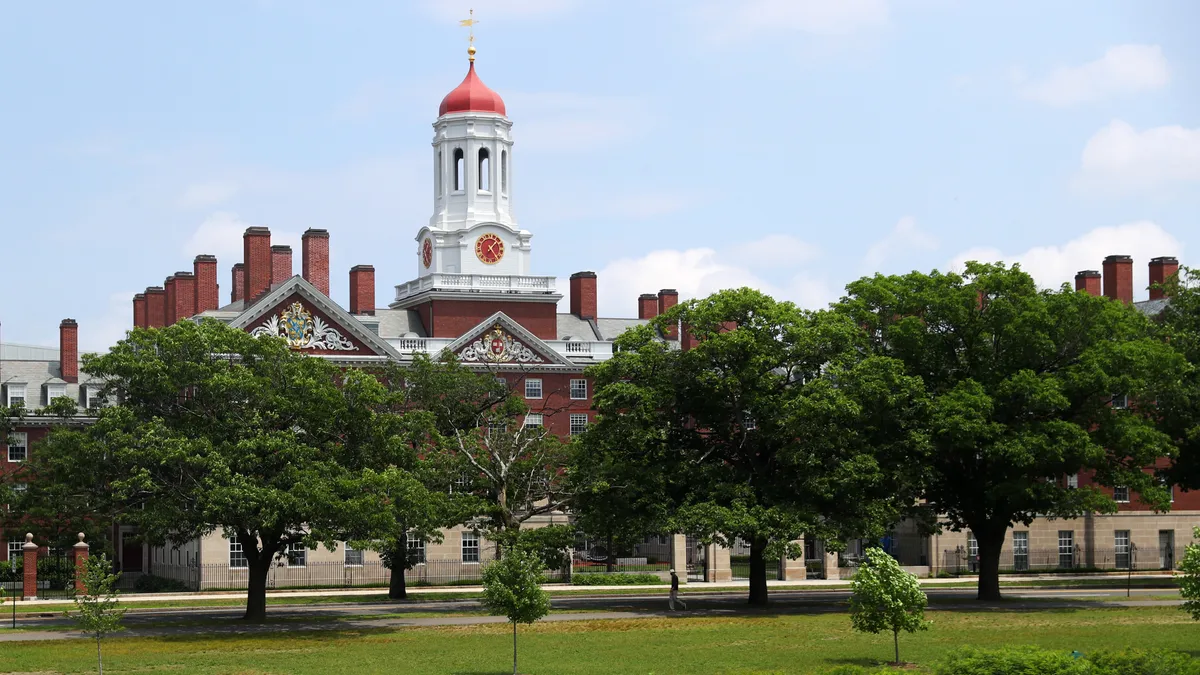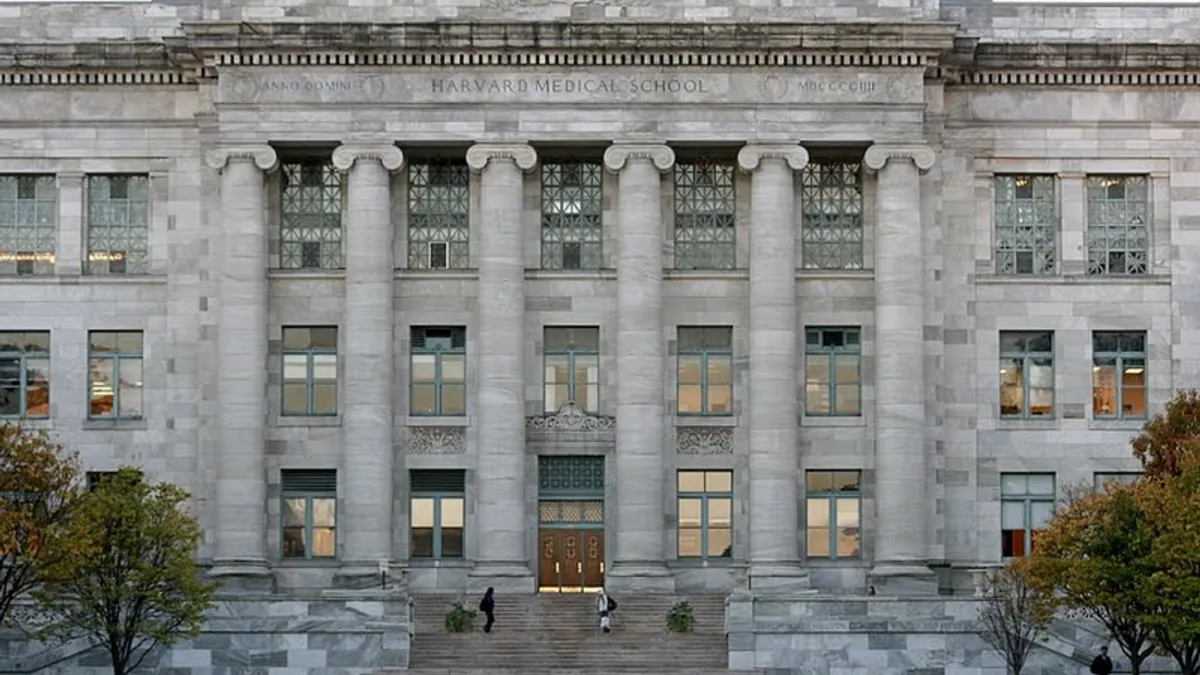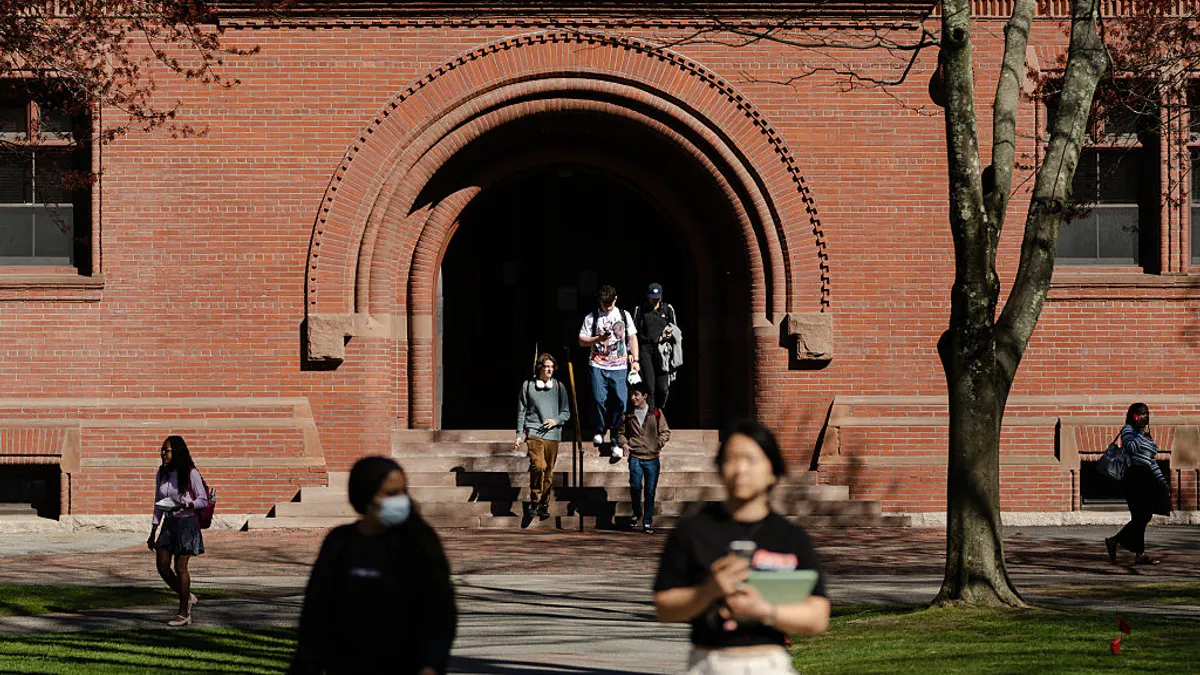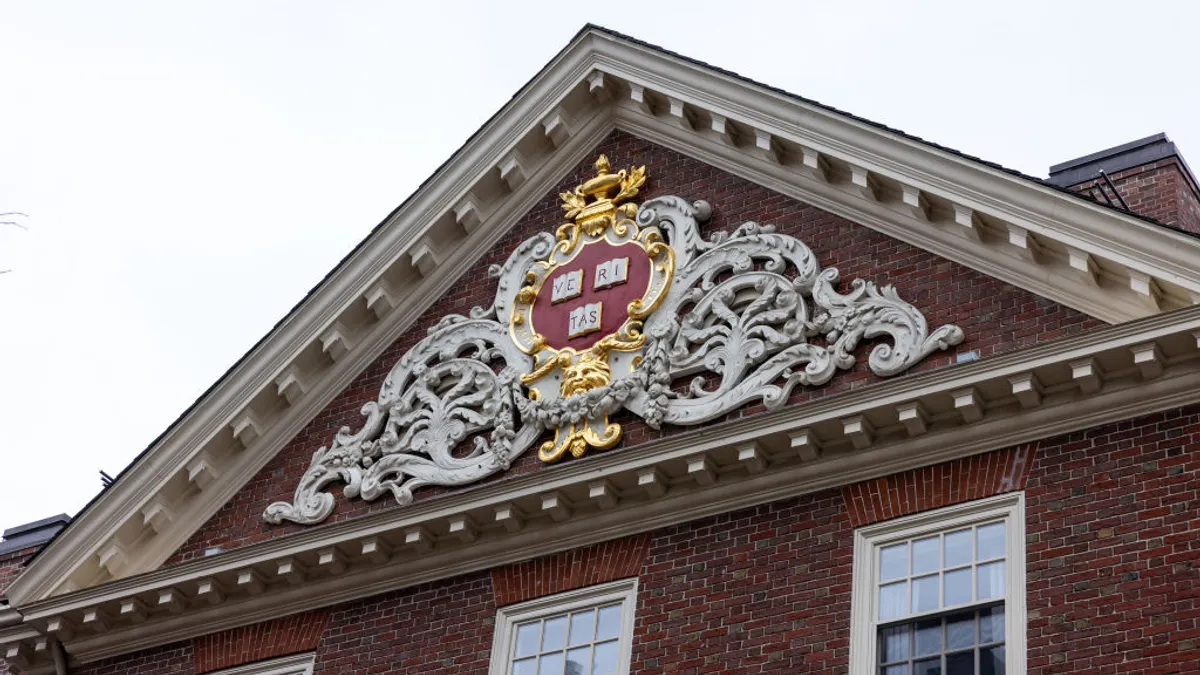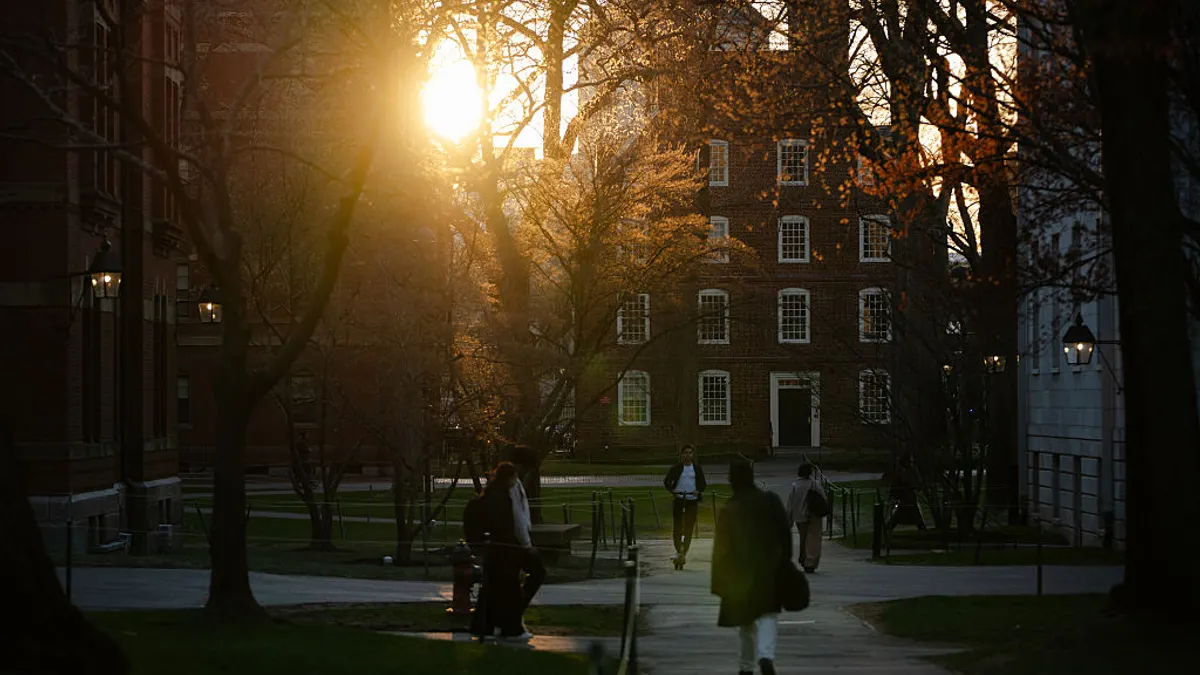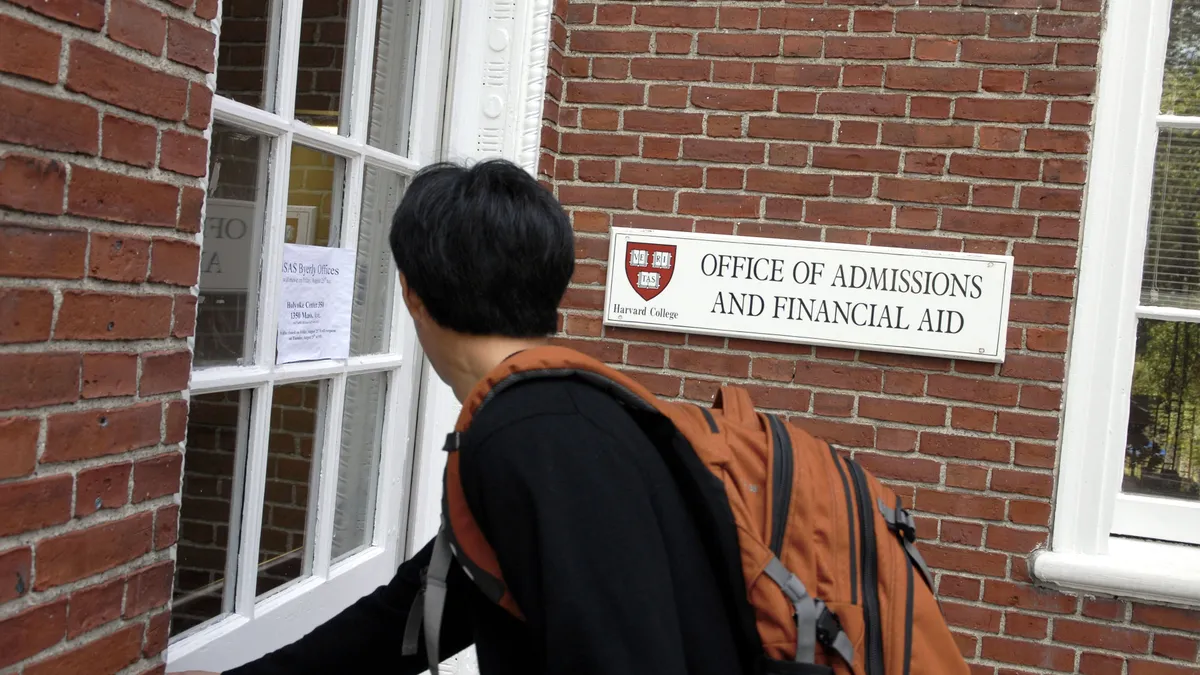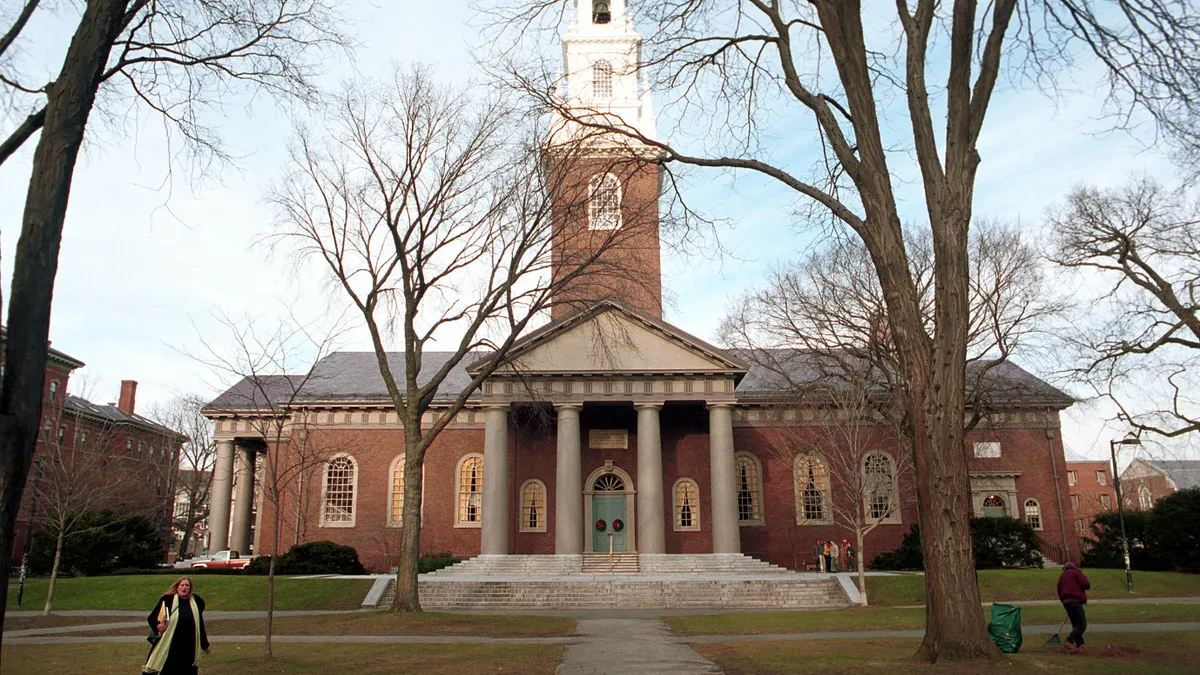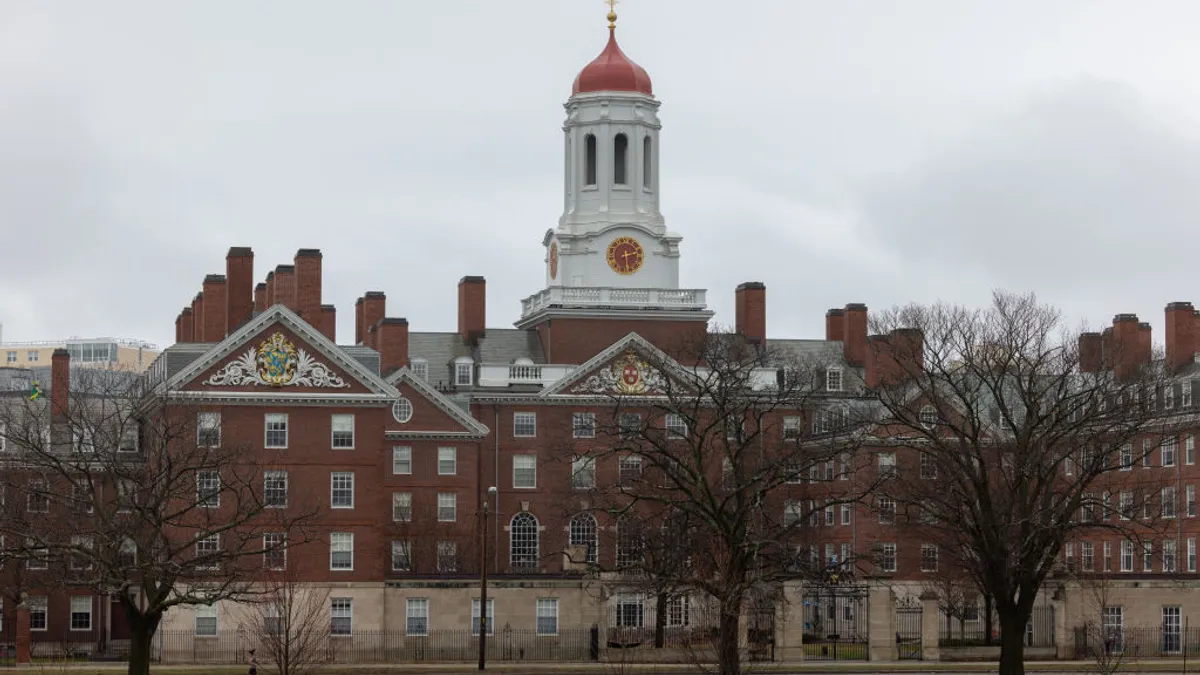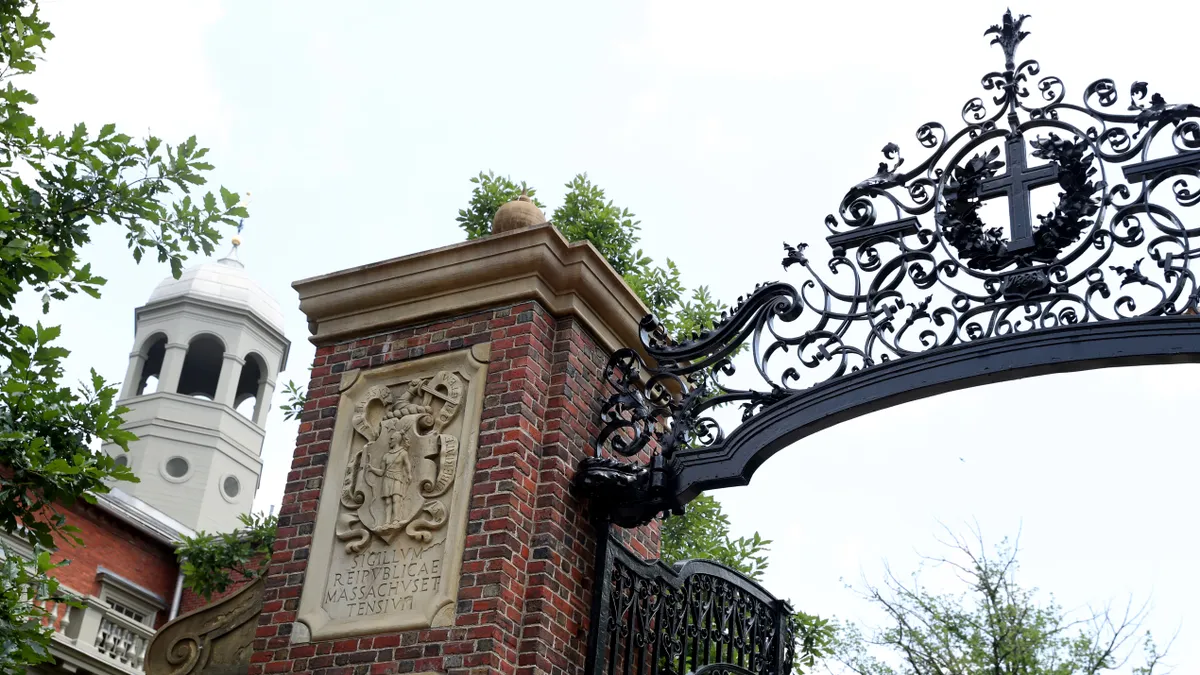Dive Brief:
- Harvard University could lose access to all federal grants and contracts under proceedings initiated by the U.S. Department of Health and Human Services on Monday.
- The agency's Office for Civil Rights has referred the university for suspension and debarment, the process by which the agency can cut off entities from federal grants and contracts if it determines that wrongdoing renders them "not responsible enough to do business" with the government.
- The move represents the latest federal effort to bend Harvard to the Trump administration's will through financial pressure. The administration has sought to use multiple federal agencies to gain increased influence over the higher education sector, singling out Harvard as a prime target.
Dive Insight:
On Monday, HHS' OCR recommended excluding Harvard from federal funding, arguing the move would protect the public interest. The agency cited its June notice that formally accused Harvard of being in “violent violation” of Title VI by being “deliberately indifferent” to harassment of Jewish and Israeli students on its campus.
Title VI forbids institutions that accept federal funds from discriminating based on race, color or national origin.
HHS can pursue the debarment process when an entity — in this case Harvard — does not voluntarily agree with the agency’s terms to return to compliance with Title VI, according to Paula Stannard, director of HHS' OCR. HHS and three other federal agencies on the Trump administration’s Joint Task Force to Combat Anti-Semitism in June called for Harvard to "institute adequate changes immediately" but did not publicly detail what those changes should be.
Stannard said Monday that Harvard has the right to a formal hearing during the suspension and debarment process.
“An HHS administrative law judge will make an impartial determination on whether Harvard violated Title VI by acting with deliberate indifference towards antisemitic student-on-student harassment,” Stannard said.
Harvard has 20 days to request the hearing. The university did not immediately respond to a request for comment on Tuesday.
Suspension and debarment applies to all federal grants and contracts, not just those from HHS. And agencies across the federal government can initiate suspension and debarment proceedings. If sustained, debarment is not permanent and typically lasts under three years, according to a 2022 HHS report.
Monday's announcement is unrelated to HHS' joint civil rights investigation with the U.S. Department of Education into Harvard and the Harvard Law Review. The agencies opened the probe in April, citing allegations of “race-based discrimination permeating the operations” of the student-run journal.
Months before HHS formally determined Harvard had violated Title VI, the Trump administration's antisemitism task force froze over $2.2 billion of the university's grants and contracts.
The halt came after Harvard President Alan Garber publicly rebuked the Trump administration's call for increased federal control of the institution. Its demands included that the university hire a third party to audit the viewpoints of Harvard students and employees, halt all diversity, equity and inclusion efforts, and reduce the power of certain faculty and administrators involved in activism.
A federal judge ruled in early September that the Trump administration violated the university's First Amendment rights and didn’t follow proper steps when it suspended the funding. No evidence indicated that "fighting antisemitism was Defendants’ true aim in acting against Harvard,” the judge wrote.
The judge's decision barred the Trump administration from cutting off Harvard's federal funding in retaliation for the university exercising its free speech rights or without following the procedural requirements of Title VI. However, the judge noted that her ruling didn't prevent the Trump administration from "acting within their constitutional, statutory, or regulatory authority."
Trump administration officials appealed the decision and said it would keep Harvard “ineligible for grants in the future.”


